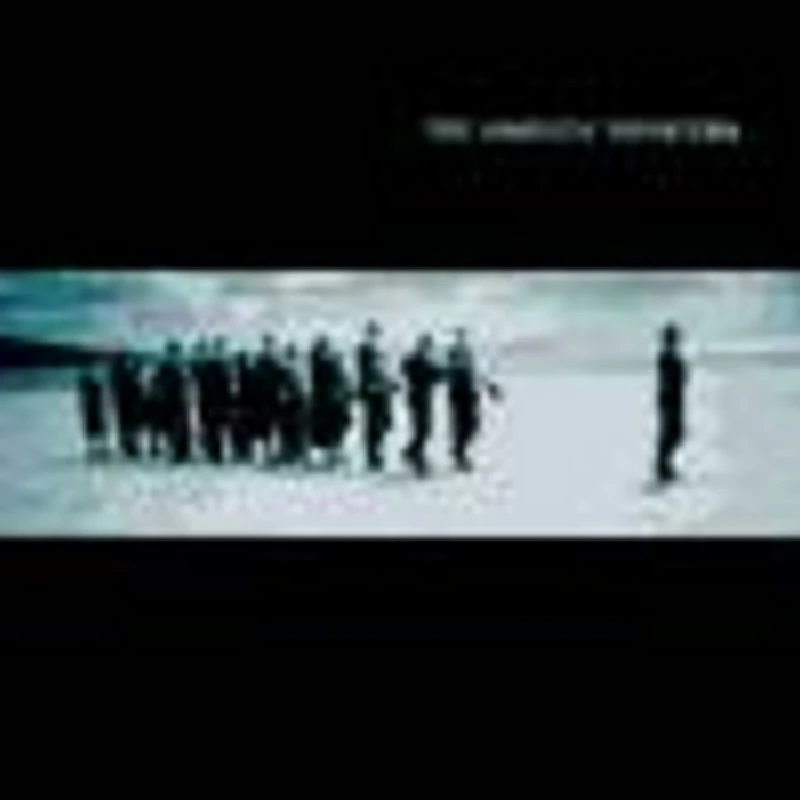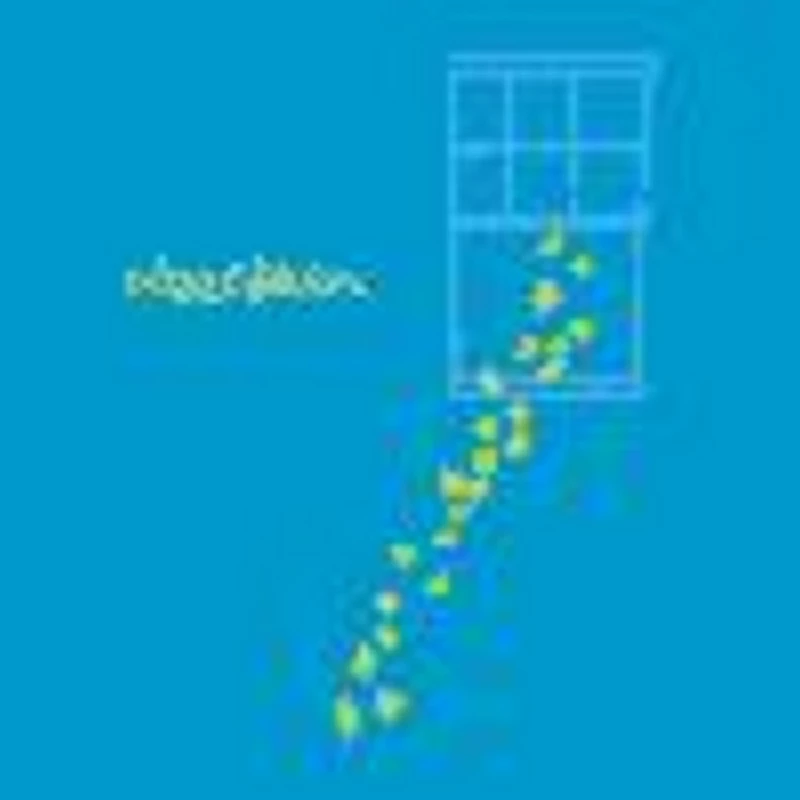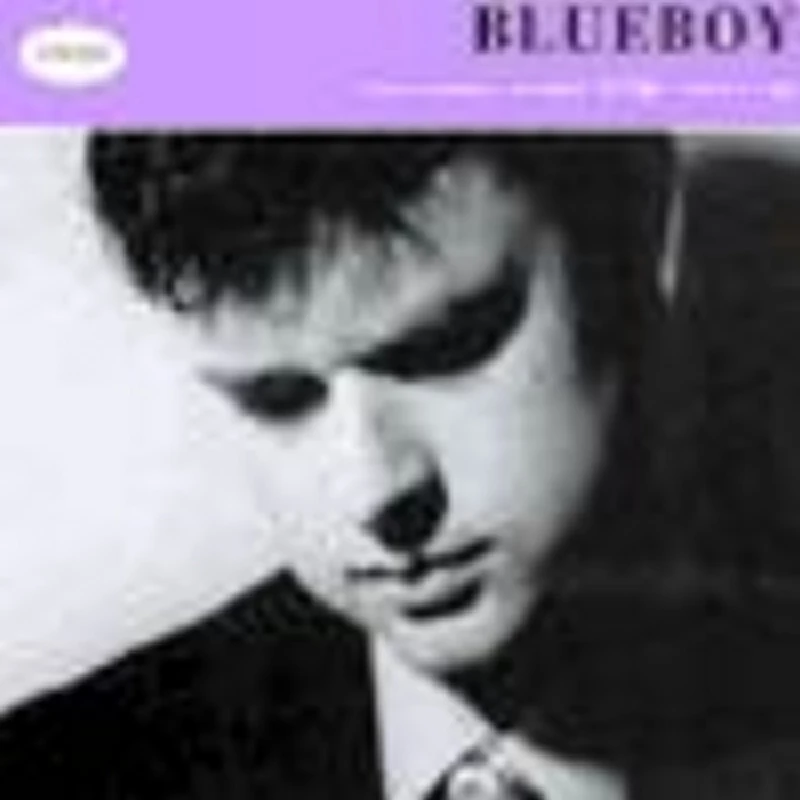Miscellaneous - Interview with Matt Haynes and Clare Wadd 2
by Julia Willis
published: 24 / 9 / 2002

intro
In the second part of our two part Sarah label interview, Julia Willis continues to chat to Matt Haynes and Clare Wadd about the influential Bristol label
PB Inadvertently what you’ve done is create a cult. If you try to get hold of any of the Sarah releases you’re looking at a very long and probably unfruitful search or paying a lot of money to get hold of them. Clare: Yeah. That is a permanent dilemma for us. PB : With that collector’s cult which I know you hate, you also get people now saying that vinyl is a great format that shouldn’t die. There are huge vinyl sections in record shops now that maybe a couple of years ago you wouldn’t have seen. Matt: It was never actually the vinyl itself we were trying to save. Clare: It was the fact that the CD was invented to sell you the record collection you already had over again. Matt: I no longer produce vinyl on Shinkansen (Matt’s current record label) because I believe with a CD single you can do as much as you can with a 7” single. Clare: It was the fact they wanted to sell the same thing at twice the price. Matt: It was the politics behind it. It is what it represents. That 7” single didn’t represent a lump of black plastic it represented a whole attitude to pop music. Clare: It was also a DIY culture because when CDs came out they were incredibly difficult to reproduce compared to vinyl whereas now it’s the other way round. So the arguments we had were very much of their time. PB : In that case it seems a lot of people have missed the point. Matt: I think they have if they thought that all we were doing was championing vinyl. The most ridiculous thing is now you see 7” vinyl sold at inflated prices because they’re on heavy vinyl. This is so completely missing the point. Clare: If you’re the type of person that can tell the quality of the vinyl then that’s fine but most people don’t have that kind of equipment. Matt: But they were never the kind of person we were making records for, not the hi-fi buffs or the people that wanted to add up catalogue numbers rather than enjoy the music. The other thing about Sarah was that we wanted it to be fun. We wanted people to be excited when they bought the records. It was hard work… trying to sleeve six or seven thousand singles over one weekend is never easy! Clare: It was an awful lot of lugging stuff around on buses as we never had a car at the start. We did rely on public transport. I remember struggling to the bus stop the first time we did a 12” single and realising I couldn’t physically carry them! Matt: It was lots of work, we did enjoy it otherwise we wouldn’t have kept on doing it. We did love the idea that the records would have the inserts that we loved writing, our own inputs with the newsletters and the silly things like postcards and board games. Clare: Someone told me the other day the board game is being sold for about £50. We lost money selling it at 50p. We had to stop selling it in the end. We didn’t think it would turn out like that because it was just paper we couldn’t justify selling it at any more. Matt: You mentioned us making 100 perfect singles but it wasn’t actually singles it was 100 perfect pop artifacts including fanzines, flexidiscs and the board game as we felt all these things were as much a part of the whole idea. It was these things as well as the 7” singles that we wanted to represent what we wanted Sarah to stand for. The game was a silly thing to do, it was disguised as a 7” single and actually a game you could play. Clare: Some people had trouble playing it. We did spend a lot of time ourselves playing it to make sure it was actually something people could use. It did rely on a knowledge of Bristol. The board game was about the frustrations of running a record label on a very DIY level. You’d have to find a shop that sold cheap parcel tape by getting around Bristol on buses and get record sleeves and so on. We couldn’t find any women to be the game pieces though, I think you could be Alan McGhee, Branson or Tony Wilson. Paul from Melody Maker (Clare’s friend): Another thing about Sarah was that there were no women involved in record labels at all so Clare who was nineteen when she started in ‘87. There were a couple of women but you could literally count these people on the fingers of one hand and sadly you still can. Sarah started post c86 period where you were getting greebo and Primal Scream in their leather jacket phase and long hair. It was when music was coming back as an antidote to all this fey stuff. Clare: You had to decide what side of the fence you were on c86 wimpy stuff or greebo macho stuff. Paul from MM: Even c86 women were playing tambourines or singing the songs that the boys had written. Clare: I always hated the illusion of female involvement. So you’d open up the NME and see pictures of women in it. We always spent a long time with the photographers saying we’re not paying for this photo session if you put the woman in the middle! They would argue it was more symmetrical but we’d always say it isn’t symmetrical if you treat them as five people. PB : You said earlier you thought it might have been better running Sarah if you hadn’t have been a female… Clare: I think people just had assumptions. Paul and I were talking about this earlier. Paul: It wasn’t even that it was difficult for them to understand why you had a policy not to put women on the sleeves but to them it was utterly unintelligible they couldn’t grasp why anyone would make that point. They asked how this was even an issue. Clare: When they had this image of us that all our record sleeves had girls on the front. I remember distinctly putting out Sarah 30 about three years in and getting a review in Venue the local magazine in Bristol saying ‘another record from Sarah with female singing’ and it was actually our first record where we’d had a female singing! People seemed to have this perception that the label was girly, there was a girl involved and therefore it was something you could make fun of and not take seriously. Matt: I think that’s the main point. Even though people should have recognised we were making good records they just never took us seriously a s a record label in the same way they did Creation or any of the others that were around at that time. Clare: Also, one of our first press pieces was Bob Stanley in NME and fair enough, he knew Matt before he knew me but the piece said that Sarah Records is a label set up by Matt and his girlfriend. That was actually the way I was perceived, as the girlfriend who helped out. Paul: Sadly that’s the way a lot of women are perceived in the industry still because they’re the girlfriends. Clare: I really had to fight to be accepted as more than just Matt’s girlfriend and not just that if we broke up, well, he’d get his next girlfriend to fold bits of paper! So I wound up doing a lot of the interviews and the press stuff just to be a female voice. Early on I took a lot of calls and people would ask me if they could speak to the person that ran Sarah records, it was a while before people got used to the idea and got to know us. They assumed I was a secretary. PB : How did you both feel when Sarah had finished. I know Matt went on to do Shinkansen but what about you Clare and what were both your motivations when you’d finished? Clare: I think the ideas for Shinkansen were already there. We knew there’d be something else. The plan was to leave a bit of a gap which I think was about a year wasn’t it? Matt: It was but obviously even though there was a gap between the first Shinkansen record and the last Sarah record although the recording and press took up most of that time in between so for me there was a pretty seamless transition. Clare: There was also lots of closing down stuff to do so that took up a lot of time too. You certainly didn’t get time to write the book did you? Matt: I really enjoyed running a record label so I knew I didn’t want to stop whereas I think Clare got to the stage where she didn’t want to do it anymore. Clare: I think I found self-employment quite stressful. Actually, perhaps I just found employment stressful! I think it was the idea that you could go bankrupt and lose everything. Matt: I am constantly amazed that I’ve actually done this for all these years because at school I never took risks and was really timid and the idea that I could actually be running my own business and not had a secure income at any stage would have horrified me. I seem to have stumbled into it and stayed doing it. PB : Did the bands find you or did you find the bands? How do you decide? Did they ever want to release anything that you weren’t sure was a ‘perfect pop release’? Matt: We knew we had to turn things down if we wanted to be respected and be a good label, if someone had recorded something that wasn’t any good. There are entire albums around that have never been released. Clare: People even ask us to put them out now and we say well, if it wasn’t good enough then it won’t be good enough now! There were some arguments. PB : Was anything put out you weren’t sure about? Clare: Inevitably I think you can always pick favourites. Matt: You do go back and think, that could have been recorded better. I really have problems with a lot of indie labels as they have a habit of releasing just anything as they seem to like the idea of releasing records. That seems to take priority over quality. I think the reason people respected Sarah was that they knew we’d release quality. Clare: People would send cheques and say, we want the next fifteen! But we wouldn’t know what the next fifteen were going to be. Matt: We knew if we released something substandard people would stop doing that. Clare: Mainly we got the bands through demo tapes. Matt: A lot came to us. Clare: We went to the Sea Urchins though, didn’t we because we knew them anyway? Matt: Yes I think the first few releases we knew from people writing the fanzines. The Sea Urchins we both already knew, the Orchids I had put out on flexidisc. By the time we’d done half a dozen releases like that we started getting demos from bands who bought the early releases. The Fieldmice bought the Sea Urchins and Orchids singles so felt they had something in common and it really just snowballed from there so we never actively went out and looked for bands. PB : Did you ever turn people away? Clare: Oh God yeah! I think when we left Bristol we took to the tip about ten binliners with demos in. Matt: I think the Manic Street Preachers were our biggest rejects! Clare: When we left Bristol we managed to have two cassette boxes of demos by them but no tapes! Matt: They’d be worth a fortune now. Claire: Didn’t we turn down Cast? Matt: Yes I think we did! Clare: People always ask us do you regret turning the Manic Street Preachers down? I liked Design For Life but I always thought they were a bit silly. The thing is would they have become as famous if they had been on Sarah? It depends whether you believe bands get famous because they’re good or because they get money spent on them at the right time in the right way. I do have a lot of respect for the Manics in a lot of ways though they just didn’t make our label at the time. Someone told me Richie still had the rejection letter in his pocket just before he disappeared and I really don’t know if that’s true or not as I heard it from someone back home who vaguely knew them. Matt: Richie certainly had the rejection letter because they’d actually sent it to us pretending it was from a friend of theirs. The demo turned out to be actually from them! Clare: It was one of those tapes you bothered writing a reply to. We did always try to reply to them but it did get difficult to do that. We could never bring ourselves to have a standard rejection letter either because it seemed so corporate. I was actually on the phone to Steve Lamacq the day that interview happened, I was trying to convince him to go and see the Fieldmice. PB : So the bands came to find you really? Did you never have a burning desire to sign anyone? You never went out scouting? Matt: We didn’t have to. It was never an issue Clare: We went out when there were bands we wanted to see. I guess we approached Heavenly… PB : Your advert in the Melody Maker announcing the end of Sarah Records mentioned he notion of destruction – what’s your fascination with destroying things?! Matt: we copped out slightly when we carried on selling Sarah records after we’d released 100 because we hadn’t sold all of the copies. To be complete purists we should have just stopped. Clare: Maybe we copped out making a compilation but we just had the perfect title for it. There was this tiny little alleyway called There and Back Again Lane and the road sign is about half the size of the street and we thought that was going to be our retrospective. Matt: We often had ideas for runoff grooves on compilations.The public transport thing was always one of our pet loves basically, it’s basically a good socialist idea. But I remember a BBC London radio programme about runoff grooves and I emailed him one of ours. It was in our "Glass Arcade" compilation, and it actually said: Side A: "Sarah Records unequivocally supports the idea of..." Side B: "... a fully-integrated light-rail rapid-transit system for the Greater Bristol area" And I think the run-off to the second one said "well, we're still here..." After all those years I was so proud to have someone read it out on air! We always tried to have some good ones on our compilation albums. Clare: Well, the compilation albums were ours so we could scratch what we wanted. Matt: But going back to the destroying thing, one thing we both hated was this idea of living in the past and we just carried this right through really. Clare: Our whole generation has this whole nostalgia thing going on at the moment. Matt: Pop music to me is always looking to the future and creating something new and not digging up the past. Clare: I think we both were anti hippy in a way though, in the way that people often think that all things people do and all creativity is good. Just because you’re doing something doesn’t mean it’s good and it’s worthwhile. Matt: Basically if you’re going to create something new you have to ignore the past. You look at the reviews pages of the monthly magazines, you see reviews of reissues of old stuff. Often I think that if they hadn’t reviewed that they could have given newer band a chance. Clare: We just didn’t want Sarah to become something that we did because that was what we did. We knew how to do it and it was automatic. It becomes harder and harder to argue with bands and say, we don’t think that song was good enough… PB : Is that hard to do? Clare: I remember spending an hour on the phone to the Sea Urchins once explaining why we didn’t like one of their records. They were really fantastic at winding us up. They were trying to get me to put my finger on why I didn’t like it. Basically because I think it was a horrible sounding guitar that put me off. Finally after an hour they got it out of me. They really made us fight for everything. If you wanted to put a track on the compilation you knew you’d have to spend an hour and a half on the phone begging even though they knew they were going to say yes at the beginning. They were lovely though and we miss them! Matt: Most of the bands realised that we were two ordinary people about the same age as them running a record label. I think if we’d been a bigger sized label they would have been more likely to tell us to get lost and treat us more like a faceless bureaucracy, which they never did. PB : Tell me more about the notion that nothing lasts forever that was also mentioned in your melody maker advert explaining your reasons for stopping the label. Matt: Some people leave school and that’s the end of their musical development. Clare: Part of the thing with music is to find new bands and in a sense once you’ve found a new band you’re always going to have to let one of the old ones go. If you find a new band that excites you it’s the best thing in the world. Matt: One of my frustrations is that people still want to buy the Fieldmice compilations rather than other new albums by theirs new projects, which is now the Trembling Blue Stars. In ten years time they’ll want to buy it though! PB : Are you ever tempted to revisit it? Clare: People are always in touch who want to do compilations. Matt: The problem is, left to ourselves we just want to say that Sarah is gone and that is it. That is the past. Clare: However you have to realise that if people do want an album out of it then who are we to stop people having their stuff released? Matt: The thing we’ve always said and we will always stick to, is the fact that Sarah is dead. There will never be a Sarah records part two and yes there are tracks coming out and there will be compilations but we always insist that nothing is ever done under the same name so perhaps people may release stuff on labels they are on now but… Clare: No one will ever get the rights to do a Sarah Records compilation at all. I’m not absolutely ruling out the possibility of there ever being one but no one else is going to get the right to do one. Although no one has asked us for ages! I liked the rumour that we turned down an offer to sell the label that was worth £2M! I’m really pleased that no one did offer us £2M because it would have been a really difficult decision! We probably would have turned it down though and we’d be kicking ourselves now! PB : What are you guys doing now? Clare: I’m an accountant! PB : Oh God! That’s an answer I didn’t expect! Clare: It always pleases me when people are surprised! Sometimes I think it’s the only benefit of being an accountant… I had a couple of crappy jobs in the music industry but I still had a degree and two maths A levels and was thinking ‘Am I ever going to have a living that’s comfortable?’ So I trained as a chartered accountant and… here I am! Matt: Yes and I’m Tory MP for Hounslow! Either that or a novelist who never wrote a book! I think a job we’d both love to do would be to make a living from writing… The chance my dear, would be a fine thing!
Label Articles:-
Sarah (2)Picture Gallery:-



most viewed articles
current edition
John McKay - InterviewCathode Ray - Interview
Robert Forster - Interview
When Rivers Meet - Waterfront, Norwich, 29/5/2025
Spear Of Destiny - Interview
Fiona Hutchings - Interview
Carl Ewens - David Bowie 1964 to 1982 On Track: Every Album, Every Song
Chris Wade - Interview
Shrag - Huw Stephens Session 08.12.10 and Marc Riley Session 21.03.12
Brian Wilson - Ten Songs That Made Me Love...
previous editions
Heavenly - P.U.N.K. Girl EPBoomtown Rats - Ten Songs That Made Me Love....
Manic Street Preachers - (Gig of a Lifetime) Millennium Stadium, Cardiff, December 1999
Allan Clarke - Interview
Oasis - Oasis, Earl's Court, London, 1995
Barrie Barlow - Interview
Beautiful South - Ten Songs That Made Me Love...
Pixies - Ten Songs That Made Me Love...
Chuck Prophet - Ten Songs That Made Me Love...
Dwina Gibb - Interview
most viewed reviews
current edition
Peter Doolan - I Am a Tree Rooted to the Spot and a Snake Moves Around Me,in a CircleVinny Peculiar - Things Too Long Left Unsaid
Garbage - Let All That We Imagine Be The Light
Vultures - Liz Kershaw Session 16.06.88
John McKay - Sixes and #Sevens
Little Simz - Lotus
HAIM - I Quit
Pulp - More
Lapsley - I'm a Hurricane, I'm a Woman In Love
Billy Nomates - Metalhorse
Pennyblackmusic Regular Contributors
Adrian Janes
Amanda J. Window
Andrew Twambley
Anthony Dhanendran
Benjamin Howarth
Cila Warncke
Daniel Cressey
Darren Aston
Dastardly
Dave Goodwin
Denzil Watson
Dominic B. Simpson
Eoghan Lyng
Fiona Hutchings
Harry Sherriff
Helen Tipping
Jamie Rowland
John Clarkson
Julie Cruickshank
Kimberly Bright
Lisa Torem
Maarten Schiethart